In all, Iowa’s hospitals provided 145,252 jobs statewide
Last year, MRHC generated just over 250 jobs that added $290,577 to Carroll County’s economy, according to the latest study by the Iowa Hospital Association. Economic impact of an organization is often measured in terms of employment, income (payroll and benefits), taxable retail sales, and sales tax collections.
“We are grateful to be able to make such an impact on our local communities,” said MRHC Chief Executive Officer, Linn Block, RN, BSN, MHA. “It takes all aspects of a community working together to be vibrant and strong.”
The study was compiled from hospital-submitted data to the American Hospital Association’s annual survey of hospitals. The study found that Iowa hospitals employed 145,252 people in 2022. As an income source, Iowa hospitals provided over $9.3 billion in wages and expenses accounted for over $21.5 billion of the state’s gross domestic product.
“Iowa’s hospitals and health systems implemented the programs and services accounted for in this study in response to their communities’ needs,” IHA President and CEO Chris Mitchell said. “Many of these programs and services wouldn’t exist without hospital support and leadership. These efforts, with IHA’s advocacy, help ensure the financial stability of hospitals, making it possible for them to provide the services and programs most-needed by the people they serve.”
Community Impact
As a non-profit, critical access hospital, the mission and purpose of MRHC is to serve those in the local community and provide a public benefit. Quality healthcare has a large community and economic impact, and it is essential for attracting other industries.
MRHC continually works to provide quality healthcare services for the community. Expanding mental health services has been a recent top priority as it consistently rates high on community health needs assessments. To meet this need, MRHC now has a counselor providing therapy services as well as telehealth mental health care for patients 12+.
To provide additional convenient healthcare options, Manning Regional now has a dedicated provider offering more same-day appointments, a new patient portal was launched to improve patient experience, and orthopedic services have been expanded to include total hip replacements. These initiatives to expand and improve healthcare services have made an important community impact, adapting to the current needs of the community.
“In addition to providing healthcare through the services we offer, we also provide widespread benefits to support our community,” Block said. “We are proud to have served at least 473 people through various community service programs in the past year.”
MRHC offers a variety of community education events, trainings, and clinics such as CPR, AED, & First Aid training classes, blood drives, monthly wellness clinics, blood pressure clinics, concussion testing at the high school, walk-in flu shot clinics, and fall prevention screenings.
They also hold and participate in educational events, such as the Bike Rodeo, babysitting courses, Suicide Prevention Walk, Live Healthy Iowa Healthiest State Walk, Senior Fun Day, Medicare seminars, giving away bike helmets, and other health-related activities at Kinderfest. Many of these efforts have a direct impact on the local economy and overall community health.
Most notably, MRHC has held several Healthcare Career Camps for local middle and high school students to have an immersive experience learning about a variety of careers in the healthcare field. This effort was recently funded by a University of Iowa grant to continue the program for more students and expand the offering to additional school districts.
MRHC has also supported foundations such as the IKM-Manning Education Foundation, West Central Iowa Healthcare Foundation, American Cancer Society, as well as community organizations such as Little Hawks Childcare Center, Manning Child Care Center, IKM-Manning Color Run, Kinderfest, Trail to Nowhere Bike Ride, Pack the Pantry, Fireman’s Golf Tourney, Main Street Manning, Manning Chamber, Manning Hausbarn Heritage Park, Manning Rotary, and Boy Scouts of America.
“We are proud to share that in the past three years, we have provided over $100,000 in community health improvement services to benefit our local communities,” shared Block.
In 2022, Manning Regional provided $92,572.41 in charity care and served more than 54 people through those efforts. Charity care is also known as uncompensated health care, which is provided for free, or at a reduced cost, to people with limited income who would otherwise be unable to pay for their treatment. Various types of financial assistance are provided to patients, and community education events and important information about health and well-being are shared through radio and print advertising, news articles, social media, and the MRHC website.
“MRHC will continue to adapt and evolve our services to meet the needs of our patients,” shared Block. “We value being a trusted community partner to improve the health and well-being of residents in west-central Iowa.”
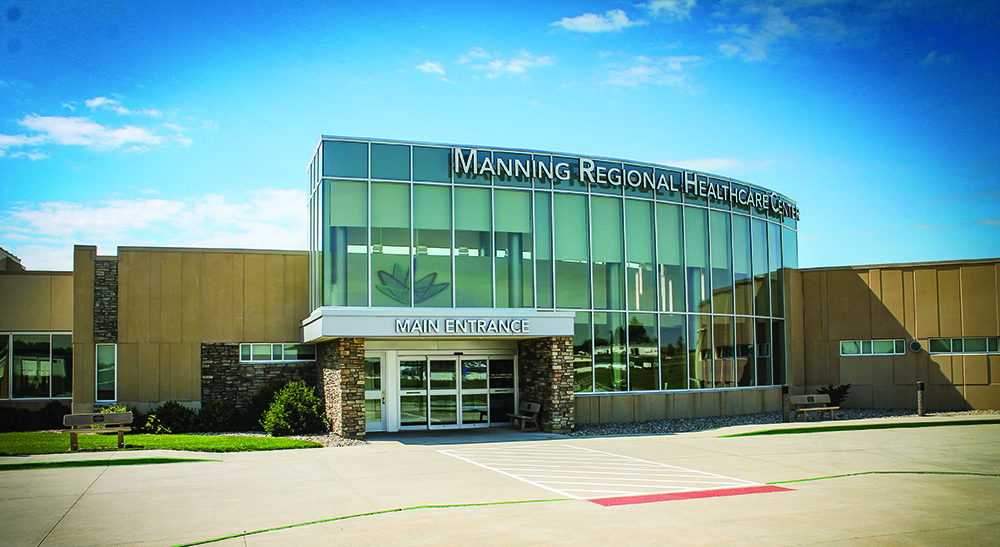
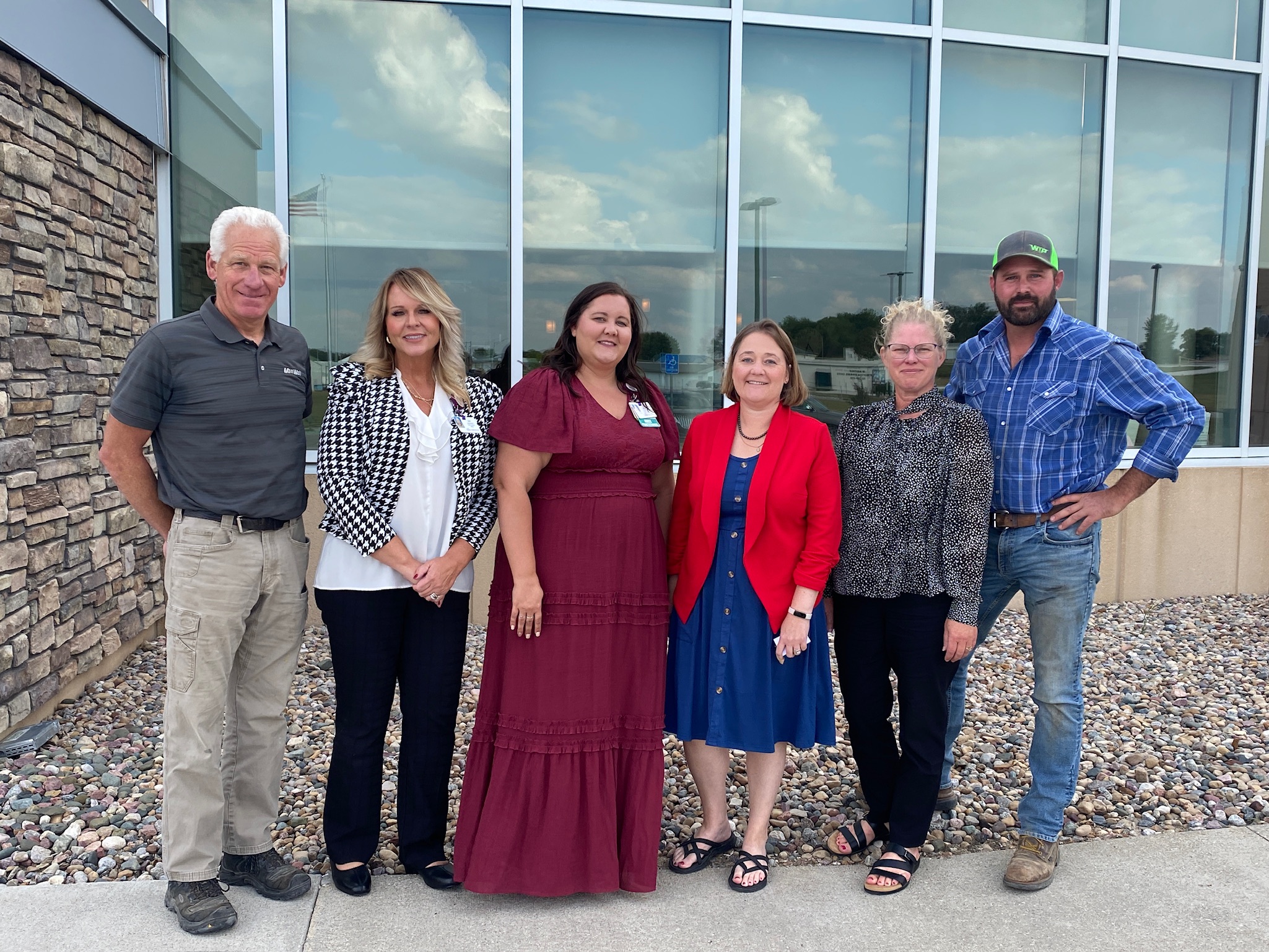
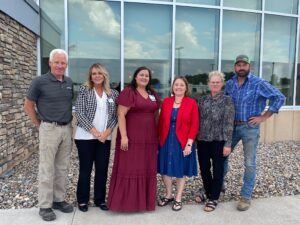
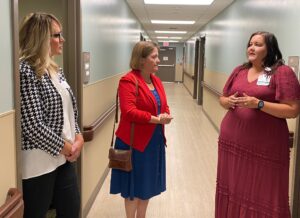 One of the key highlights of Attorney General Bird’s visit was her exploration of the Recovery Center at Manning Regional Healthcare Center, where she engaged in discussions with addiction treatment specialists, counselors, and individuals in recovery. She expressed her deep concern about the rising prevalence of substance abuse issues in rural areas and emphasized the importance of comprehensive treatment options.
One of the key highlights of Attorney General Bird’s visit was her exploration of the Recovery Center at Manning Regional Healthcare Center, where she engaged in discussions with addiction treatment specialists, counselors, and individuals in recovery. She expressed her deep concern about the rising prevalence of substance abuse issues in rural areas and emphasized the importance of comprehensive treatment options.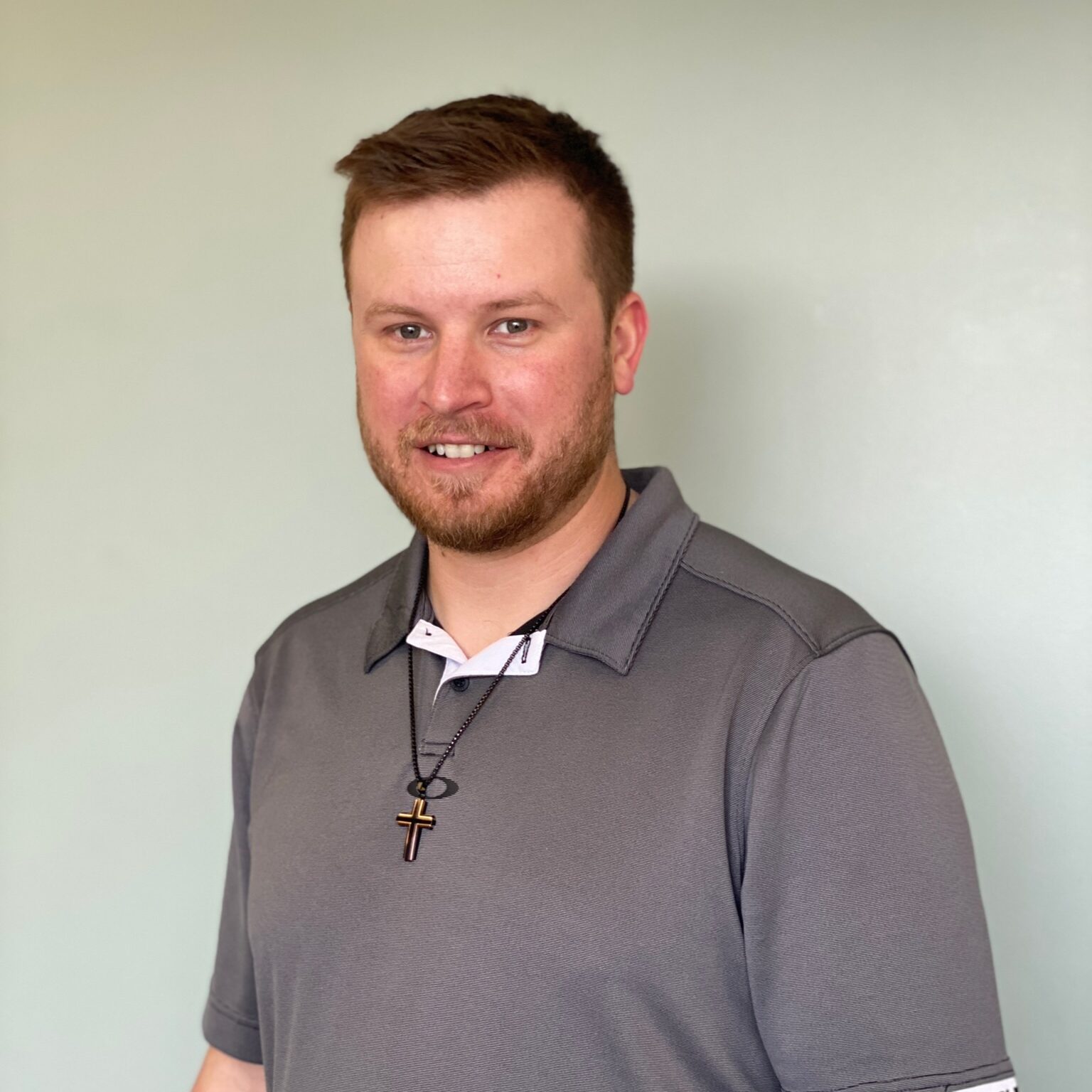
 “After working at the Recovery Center for a while it was clear to me that this is what I want to do for a living – help suffering addicts find hope in recovery,” explained Lytle. “Going through treatment here myself, I know the pain and struggles that our clients are going through. Being able to relate and help them through it is very rewarding and I want to continue doing that.”
“After working at the Recovery Center for a while it was clear to me that this is what I want to do for a living – help suffering addicts find hope in recovery,” explained Lytle. “Going through treatment here myself, I know the pain and struggles that our clients are going through. Being able to relate and help them through it is very rewarding and I want to continue doing that.”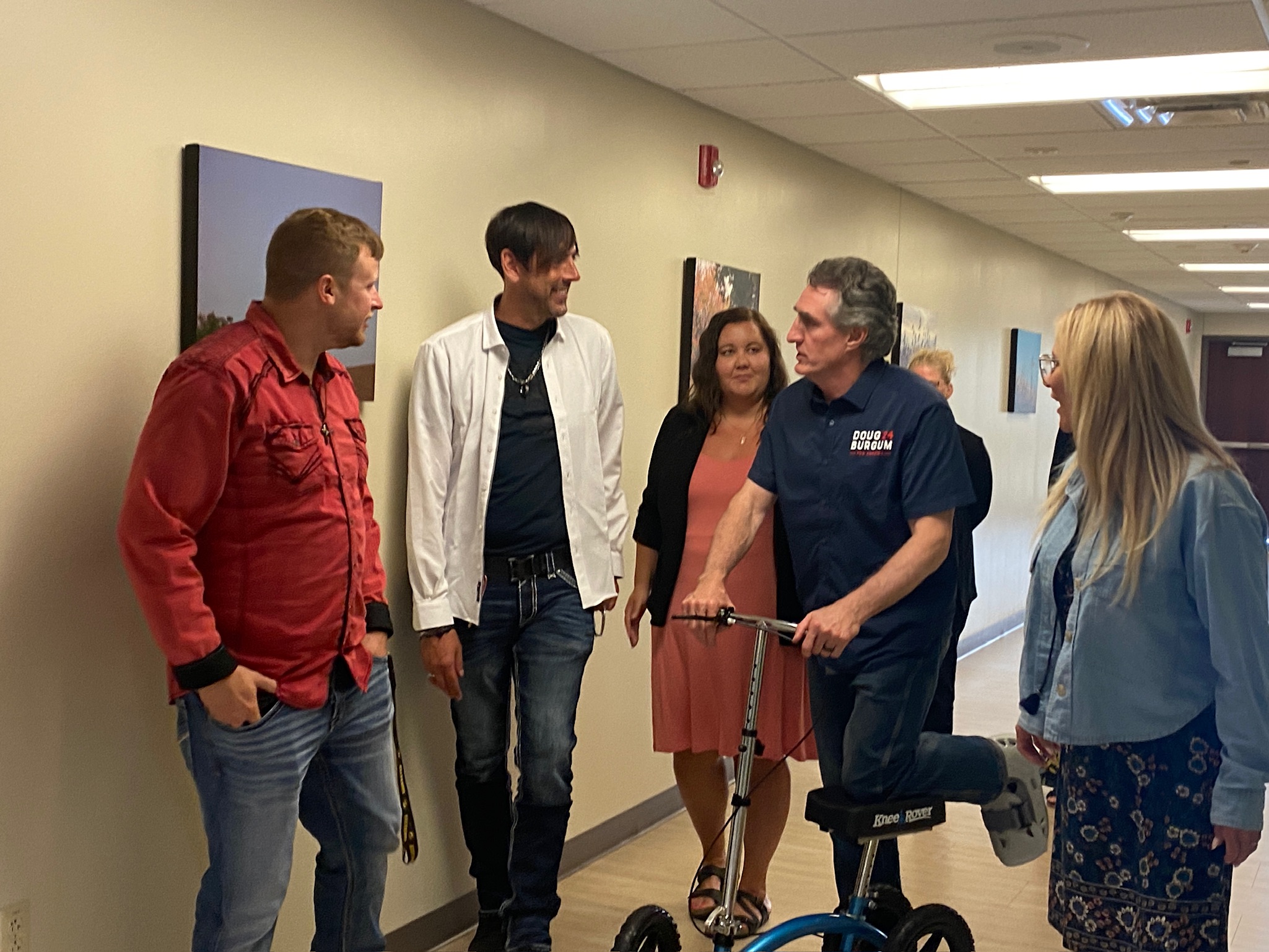
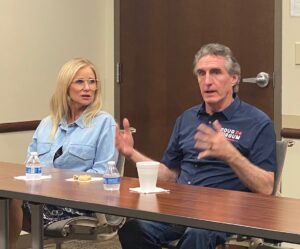 epublican presidential candidate and North Dakota Governor, Doug Burgum, along with his wife, Kathryn, visited Manning Regional Healthcare Center on Wednesday, September 6th to learn about the challenges and opportunities within rural healthcare.
epublican presidential candidate and North Dakota Governor, Doug Burgum, along with his wife, Kathryn, visited Manning Regional Healthcare Center on Wednesday, September 6th to learn about the challenges and opportunities within rural healthcare.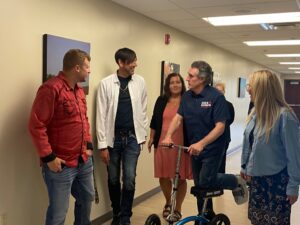 He continued, “These are sons and daughters [or] nieces and nephews of people who have been trapped in the disease of addiction and this is something we have to take on as a nation. There is a role for communities to play, but it starts right here like what is happening in Manning where great people [are] caring for each other and approaching this as the disease it is to fight against the disease of addiction.”
He continued, “These are sons and daughters [or] nieces and nephews of people who have been trapped in the disease of addiction and this is something we have to take on as a nation. There is a role for communities to play, but it starts right here like what is happening in Manning where great people [are] caring for each other and approaching this as the disease it is to fight against the disease of addiction.”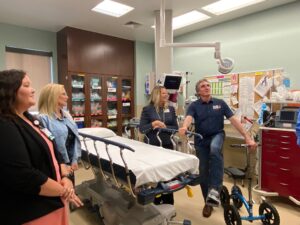 Additionally during the hospital tour, the Governor and first lady stopped in the emergency department and experienced a live-look at the Avel e-Care emergency response system. They were impressed with the quality of care that can be achieved in rural areas despite having limited staffing. They also acknowledged that additional technological advances are necessary in order for rural healthcare to succeed long-term.
Additionally during the hospital tour, the Governor and first lady stopped in the emergency department and experienced a live-look at the Avel e-Care emergency response system. They were impressed with the quality of care that can be achieved in rural areas despite having limited staffing. They also acknowledged that additional technological advances are necessary in order for rural healthcare to succeed long-term.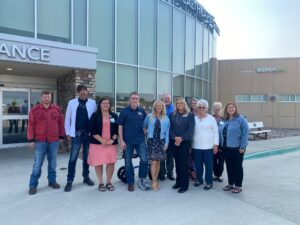 “We are thankful for the Governor and Kathryn’s visit to MRHC and appreciate them taking time to learn about the unique services we offer here, as well as the challenges we face with regard to rural healthcare funding and staffing,” shared MRHC CEO, Linn Block.
“We are thankful for the Governor and Kathryn’s visit to MRHC and appreciate them taking time to learn about the unique services we offer here, as well as the challenges we face with regard to rural healthcare funding and staffing,” shared MRHC CEO, Linn Block.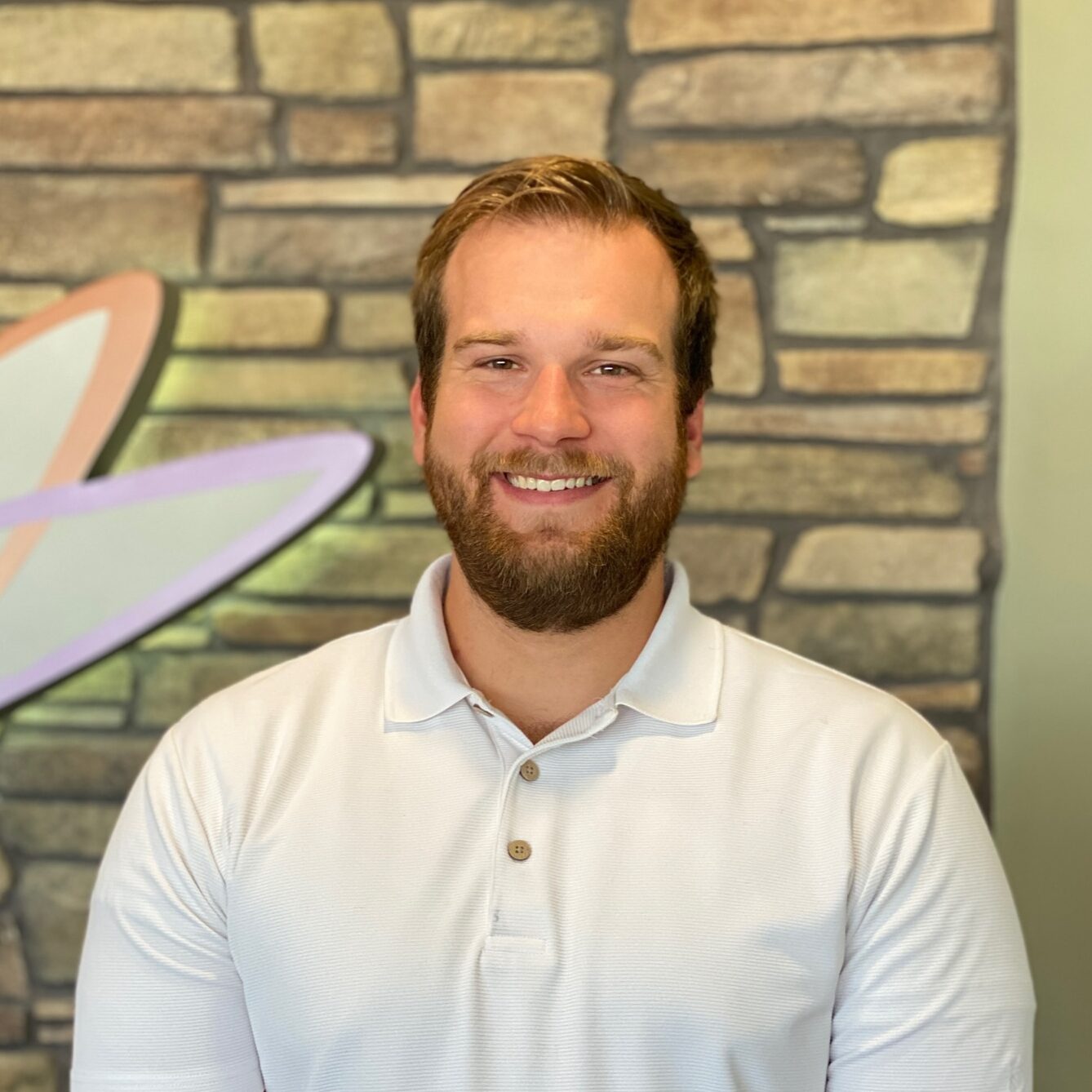
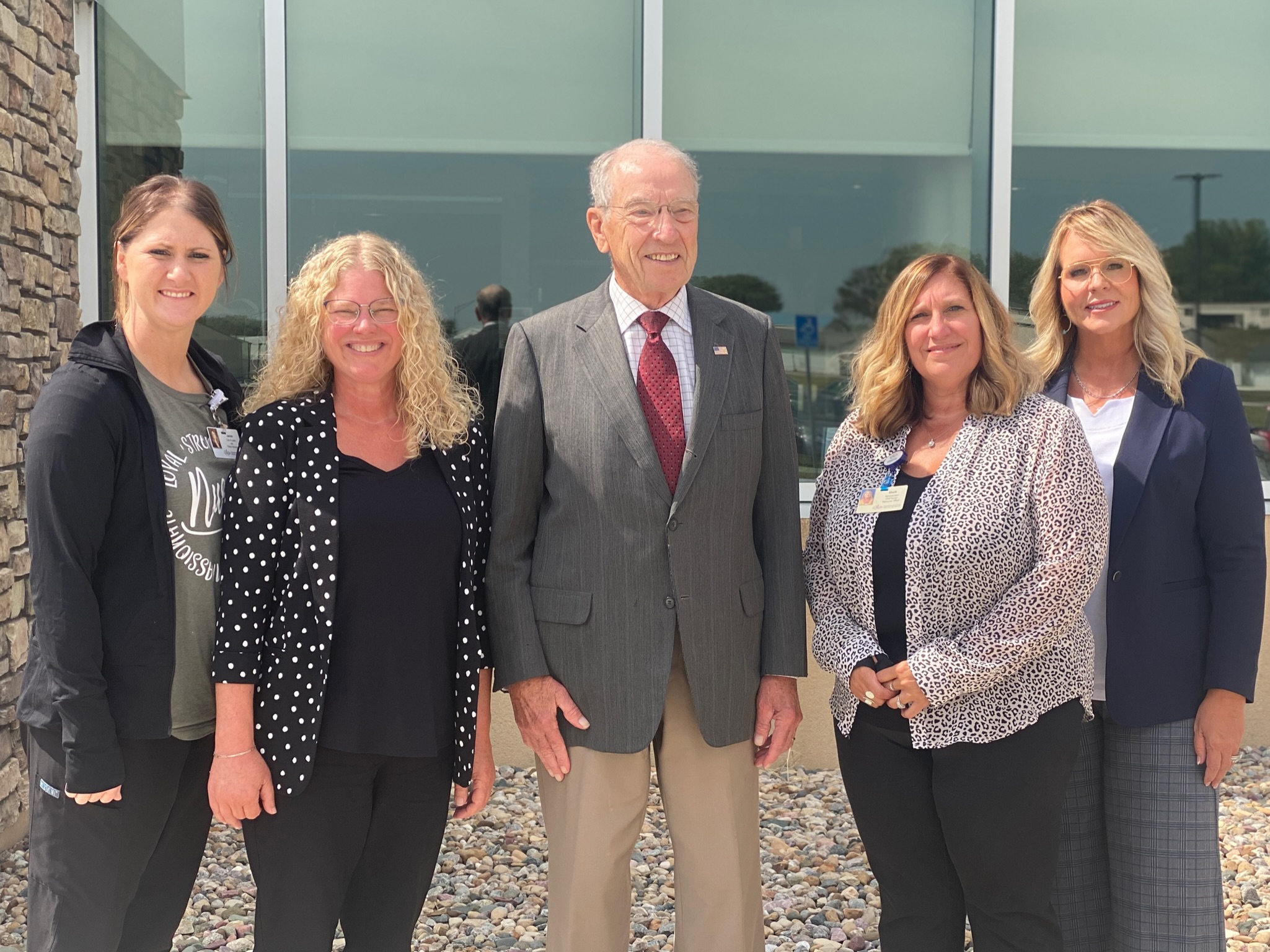
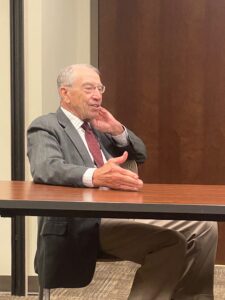 U.S. Sen. Chuck Grassley (R-Iowa) toured Manning Regional Healthcare Center and met with hospital administration and board leadership on Monday, August 28, as part of his annual 99 county tour. Also present on behalf of MercyOne were Bob Ritz, CEO; Mary Cownie, Chief of Staff; and Mike Trachta, Vice President of Network Affiliates.
U.S. Sen. Chuck Grassley (R-Iowa) toured Manning Regional Healthcare Center and met with hospital administration and board leadership on Monday, August 28, as part of his annual 99 county tour. Also present on behalf of MercyOne were Bob Ritz, CEO; Mary Cownie, Chief of Staff; and Mike Trachta, Vice President of Network Affiliates.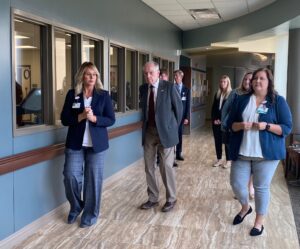
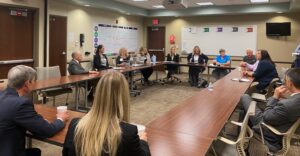
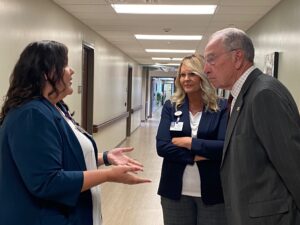
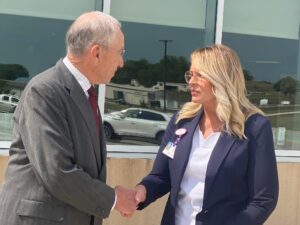
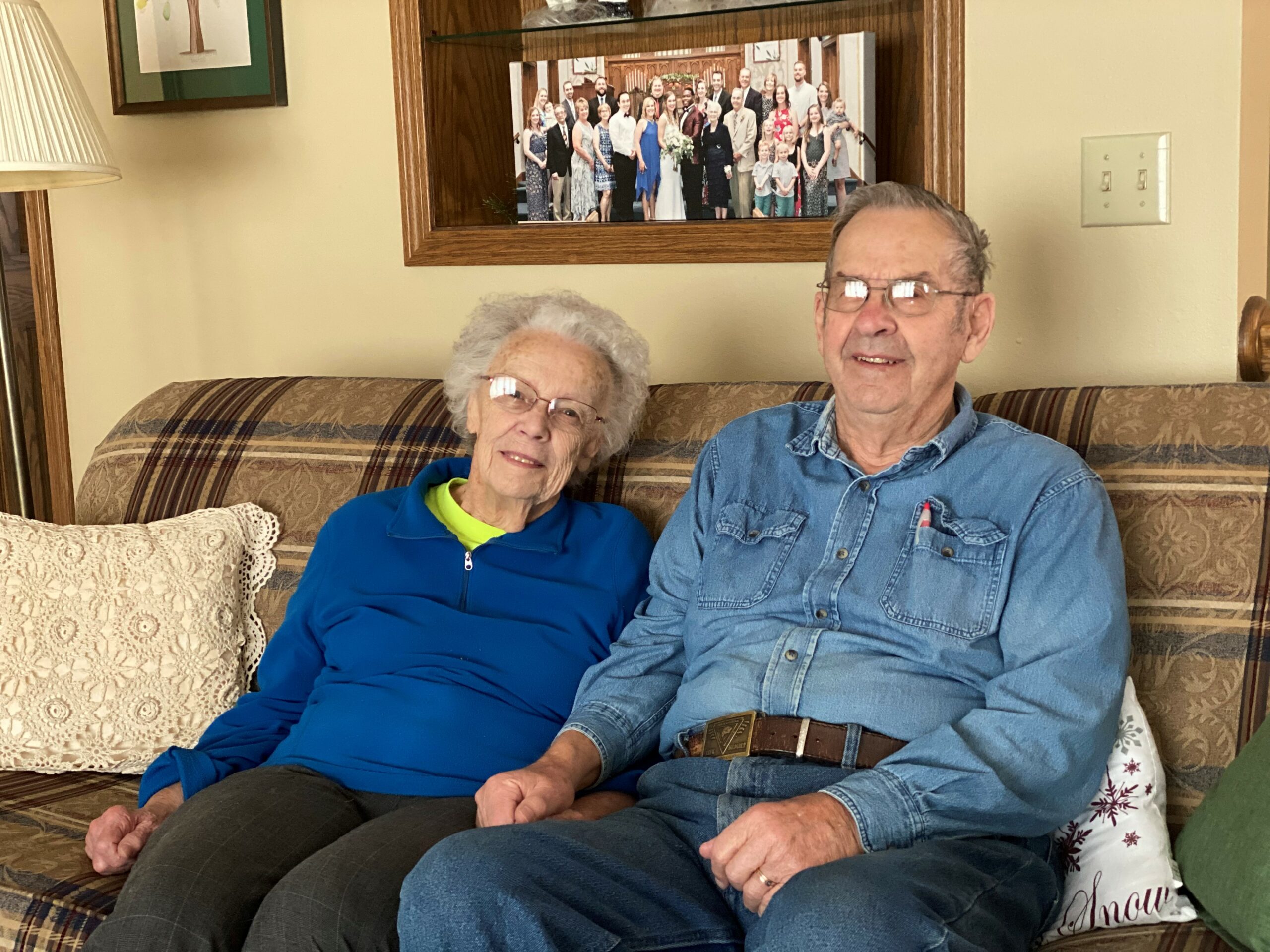
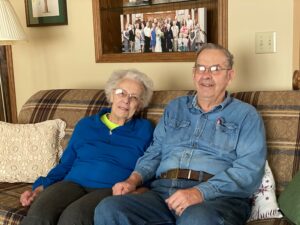 In today’s day and age, people often want to ‘experience the most’ and ‘live their best life.’ One part of living a great life is to be grateful for the opportunities and places that you value and to consider the impact you want to make and the legacy you wish to leave for the next generation.
In today’s day and age, people often want to ‘experience the most’ and ‘live their best life.’ One part of living a great life is to be grateful for the opportunities and places that you value and to consider the impact you want to make and the legacy you wish to leave for the next generation.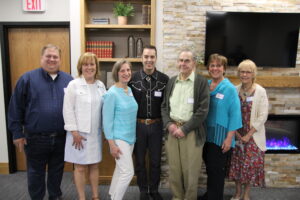 Most notably was their foundational gift to kickstart the
Most notably was their foundational gift to kickstart the 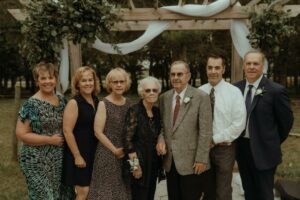
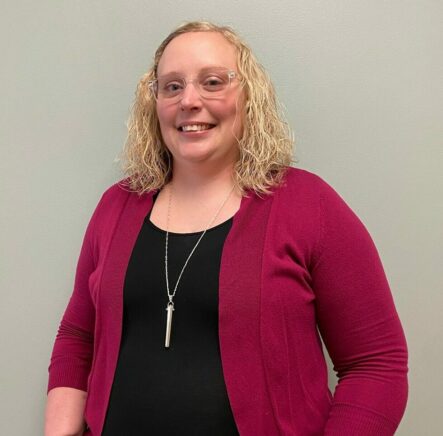
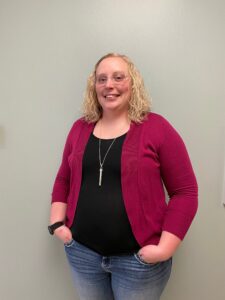 To address one of the primary health concerns affecting our rural communities, MRHC is expanding mental health services. Hollie Schechinger, a counselor in the
To address one of the primary health concerns affecting our rural communities, MRHC is expanding mental health services. Hollie Schechinger, a counselor in the 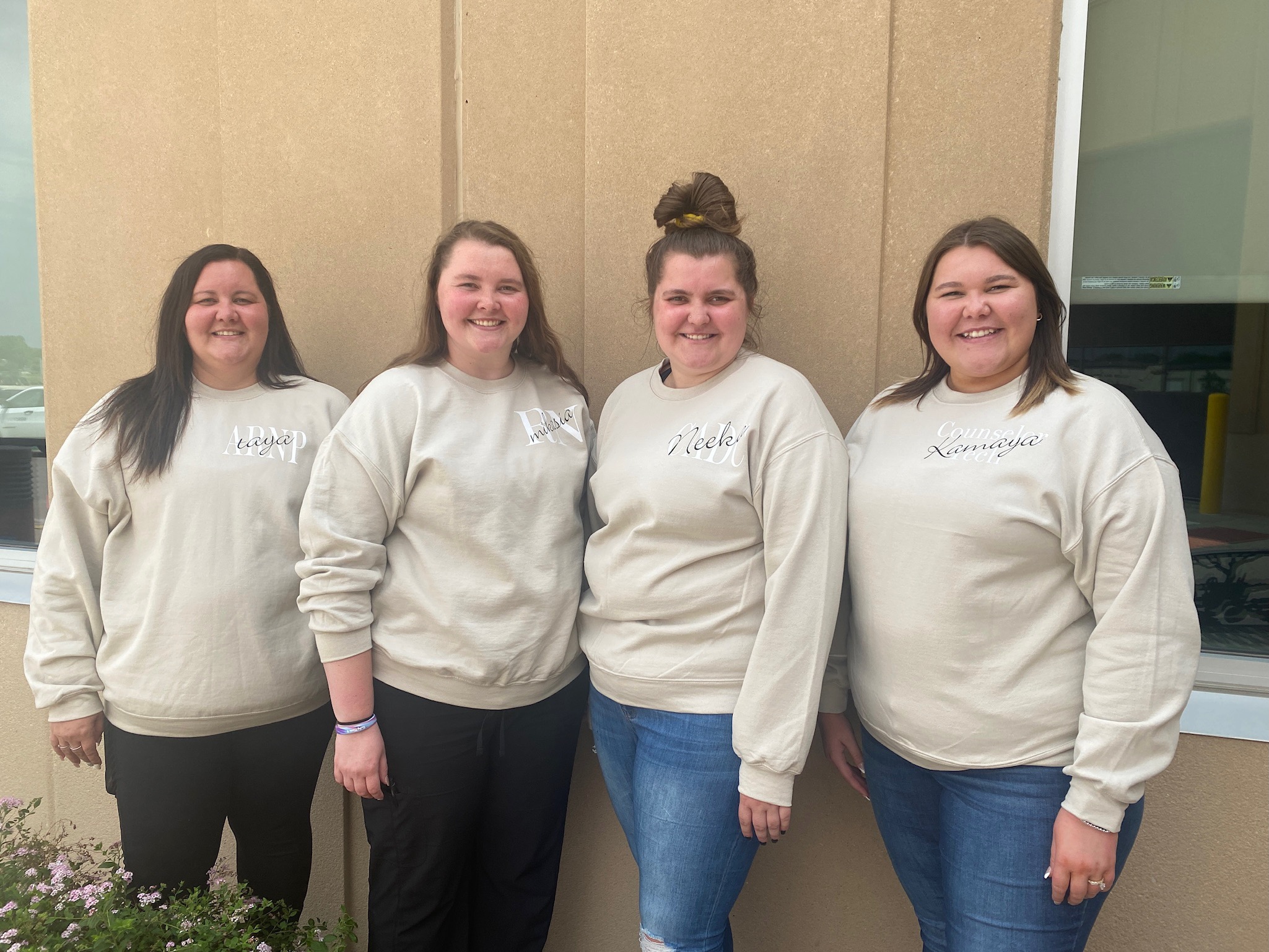
 Taya, the oldest sister, currently serves as the Director of the Recovery Center at MRHC. After becoming a CNA and working at the Plaza throughout high school, Vonnahme received her LPN from Iowa Lakes Community College in 2009. After transitioning to MRHC full time as a discharge planning nurse in 2011, she continued to add jobs to her title until 2015 when she applied to go back to school for her RN. Once she graduated with her associate degree in nursing, she transitioned to a house supervisor at MRHC and obtained her BSN from Walden University in 2018. In 2020, she earned her master’s degree as a Family Nurse Practitioner with support from the MRHC tuition assistance program.
Taya, the oldest sister, currently serves as the Director of the Recovery Center at MRHC. After becoming a CNA and working at the Plaza throughout high school, Vonnahme received her LPN from Iowa Lakes Community College in 2009. After transitioning to MRHC full time as a discharge planning nurse in 2011, she continued to add jobs to her title until 2015 when she applied to go back to school for her RN. Once she graduated with her associate degree in nursing, she transitioned to a house supervisor at MRHC and obtained her BSN from Walden University in 2018. In 2020, she earned her master’s degree as a Family Nurse Practitioner with support from the MRHC tuition assistance program.
 “My family is for sure my main support through my career choices, but my sisters are my biggest supporters. They are the ones I go to for any decisions or help I need along the way,” said Kamaya. “It was because of my sisters I got the opportunity to work at MRHC.”
“My family is for sure my main support through my career choices, but my sisters are my biggest supporters. They are the ones I go to for any decisions or help I need along the way,” said Kamaya. “It was because of my sisters I got the opportunity to work at MRHC.” “I wanted to help my community in a way that would make an impact,” said Neeka, CADC, a CNA, EMT, and counselor tech in the Recovery Center. Mikasia adds, “there are highs and lows when working in a small town. The lows hit a lot harder as these are the people we have grown up with or have watched grow up themselves. I care a lot for my community, and I hurt when we have a loss. But the highs are worth it. Being able to provide great medical care and seeing progress for our patients is very rewarding. I really enjoy that I can share these experiences with my sisters and that when people come in, they know they can count on one of the Jacobsen/Genzen girls.”
“I wanted to help my community in a way that would make an impact,” said Neeka, CADC, a CNA, EMT, and counselor tech in the Recovery Center. Mikasia adds, “there are highs and lows when working in a small town. The lows hit a lot harder as these are the people we have grown up with or have watched grow up themselves. I care a lot for my community, and I hurt when we have a loss. But the highs are worth it. Being able to provide great medical care and seeing progress for our patients is very rewarding. I really enjoy that I can share these experiences with my sisters and that when people come in, they know they can count on one of the Jacobsen/Genzen girls.”